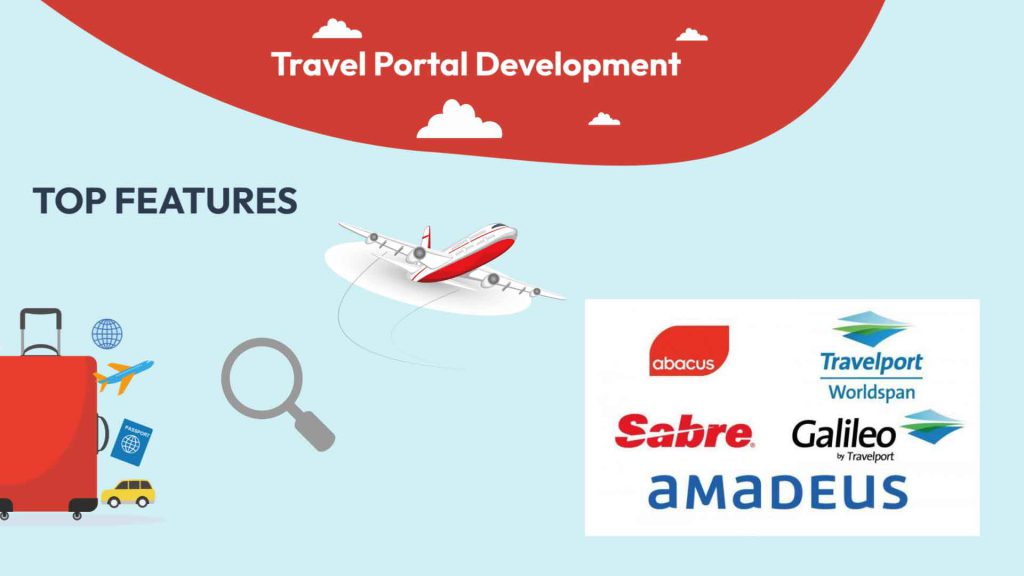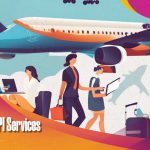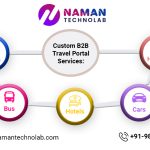In today was fast-paced travel industry, having a modern travel portal is no longer optional; it is a necessity for any company aiming to meet the demand of tech savvy travelers. Travel portals act as the backbone for seamless booking experiences, personalized travel plans, It’s efficient business operations. To stay ahead of the competition, your travel portal must encompass innovative, user centric, and technologically advanced features. Below, we delve into the key features that a modern travel portal features must include to deliver exceptional value to users and partners a like.
Advanced Search and Filter Options
A robust search It’s filter systems is the cornerstone of any successful travel portal. Customers expect quick, accurate, and relevant results tailored to their preferences. Key components include:
- Multi-criteria Search: Allow user to search by intention, date, budget, and travel type (e.g., leisure, business).
- Dynamic Filters: Include filters for airlines, hotels ratings, amenities, price ranges, It’s more.
- Real-Time Availability: Display live inventory to avoid disappointing user with outdated options.
- Predictive Search Suggestions: Improve usability by offering suggestions as a users type.
Seamless Booking Engine
The booking engine should be intuitive, fast, and secure. A streamlined booking process can significantly improve customers satisfaction It’s conversion rates. Essential features include:
- Single-Page Checkout: Reduce friction by simplifying the check-out process.
- Multiple Payment Gateways: Support diverse payment options such as a credit/debit cards, UPI, E-wallets, and cryptocurrencies.
- Currency Converter: Automatically display prices in the user was local currency.
- Booking Modifications: Offer users the ability to make changes to their reservations with ease.
- Auto-Generated Invoices: Provide detailed receipts via email immediately after bookings.
Personalized User Experience
Modern travelers demand a personalized experience that aligns with their preferences and habits. compiling AI It’s data analytics can make personalization highly effective. Must have features include:
- User Profiles: Enable users to save preferences, travel history, its upcoming trips.
- Custom Recommendations: Suggest destinations, hotels, and activities based on user behavior.
- Loyalty Programs: Encourage repeat booking by offering reward points or discounts.
- Multi-Language Support: Cater to a global audience with content available in multiple languages.
- Geo-Location Services: Display location-based commendation and alerts.
Integration with Global Distribution Systems (GDS)
Seamless integration with major GDS platforms such as Amadeus, Sabre, and Travel port ensures access to real-time inventory from airlines, hotels, car rentals, and other travel services. Benefits of GDS integration include:
• Wider Inventory Access: Provide users with an extensive range of travel options.
• Real-Time Updates: Ensure accurate pricing and availability.
• Efficient Booking Management: Automate processes to save time and reduce manual errors.
Mobile-First Design
With the growing dominance of smartphones, a mobile-friendly travel portal is essential. Mobile-first designs improve user experience and increase engagement. Features to prioritize include:
- Responsive UI/UX: Ensure the portal works flawlessly on all screen sizes.
- Mobile App Integration: Develop apps for IOS and Android to complement your web portal.
- Push Notifications: Keep users updated on booking confirmations, deals, and travel alerts.
Comprehensive Admin Panel
A powerful admin dashboard ensures smooth backend operations for managing users, inventory, and analytics. Critical features include:
- User Management: View, edit, and manage customer accounts.
- Analytics and Reporting: Gain insights into bookings, revenue, and user behavior.
- Inventory Management: Track and update travel products in real-time.
- Role-Based Access Control: Grant varying access levels to different team members.
High-Level Security Features
Security is a top priority in the travel industry to protect sensitive user data and transactions. A modern travel portals must include:
- SSL Encryption: Secure data transmission with (HTTPS) agreement.
- Two-Factor Authentication (2FA): Enhance login security.
- Fraud Detection Systems: Monitor transactions for suspicious activity.
- GDPR Compliance: Ensure adherence to global data protection standards.
- Tokenized Payments: Safeguard financial information with advanced encryption techniques.
Multi-Vendor Module
For B2B portals, a multi-vendor system facilitates partnerships with travel agents and service providers. Key functionalities include:
- Vendor Registration: Enable suppliers to list their services.
- Commission Management: Set flexible commission rates for different vendors.
- Performance Analytics: Track vendor performance with detailed metrics.
- Product Reviews and Ratings: Build trust by showcasing user feedback.
Integration of APIs and Third-Party Tools
APIs and third-party integrations enhance the functionality and scalability of travel portals. Examples include:
- Payment Gateway APIs: Facilitate smooth transactions.
- Social Media Integrations: Allow users to share their travel plans or reviews.
- Weather and Maps APIs: Provide real-time weather updates and route navigation.
- Chabot Integration: Offer 24/7 customer support through AI-powered bots.
Advanced Marketing Tools
Effective marketing features help drive traffic It’s conversions. Your portal should include:
- SEO-Friendly Design: Optimize site structure and content for search engines.
- Email Marketing Integration: Automate promotional campaigns and newsletters.
- Retargeting Ads: Engage users who abandoned bookings.
- Social Media Widgets: Promote sharing and engagement.
- Discount Codes and Coupons: Attract customer with special offers.
Reviews and Ratings System
A transparent reviews It’s ratings system build trust It’s enhances user confidence. Ensure the following functionalities:
- Verified Reviews: Allow only genuine customers to post reviews.
- Detailed Ratings: Enable users to rate specific aspects such as a cleanliness, amenities, It’s customers service.
- Reply to Reviews: Allow businesses to respond to feedback.
Scalable Architecture
As your business grows, your travel portals should scale seamlessly. Ensure the architecture supports:
- Cloud Hosting: Use scalable cloud solutions like (AWS) or Azure.
- Load Balancing: Handle traffic spikes efficiently.
- Micro services: Develop independent modules for easier updates It’s maintenance.



